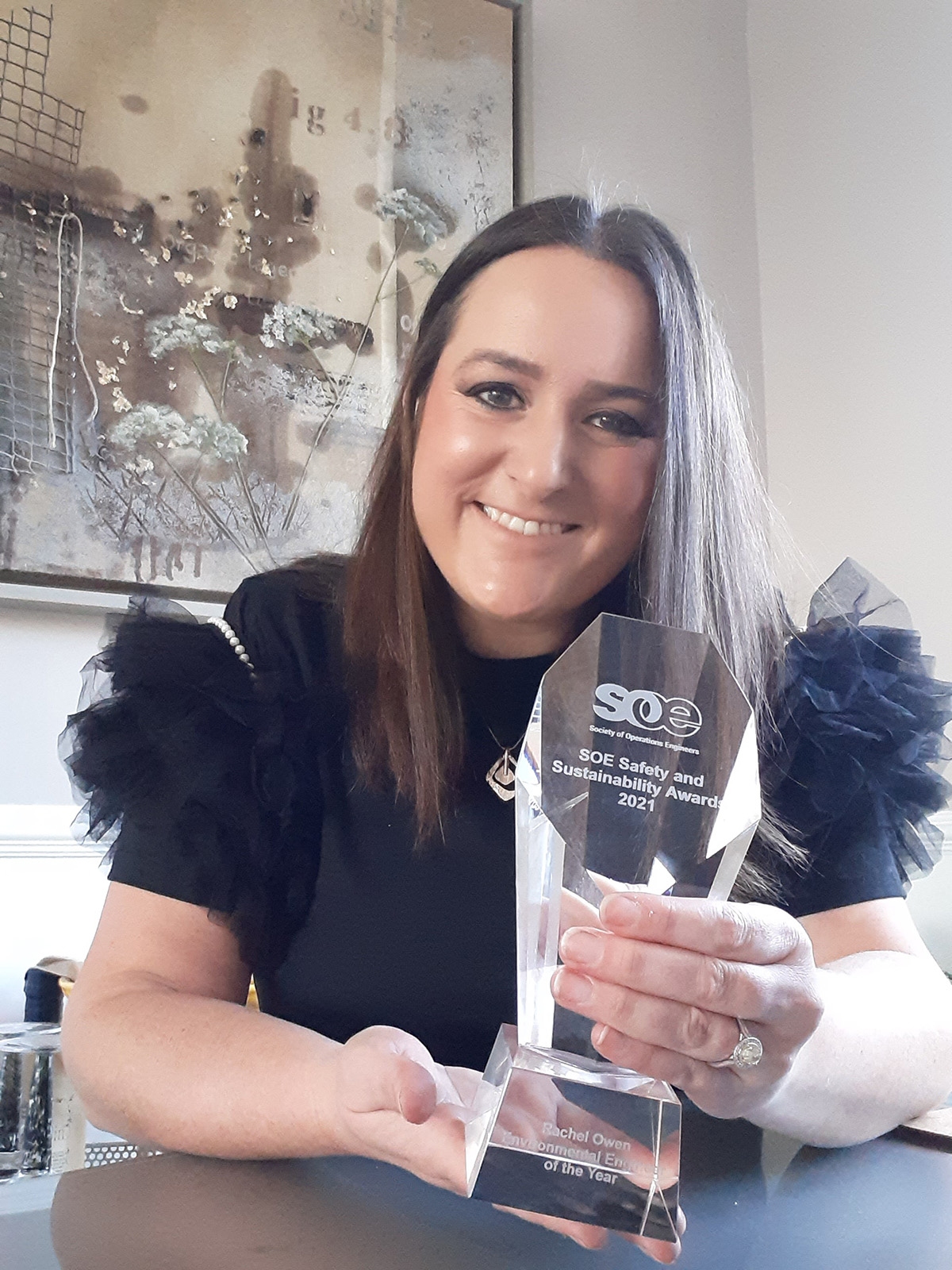Rachel Owen wins SOE Environmental Engineer of the Year after success of Northern Ireland rewilding report.

A long-term project that aimed to prove the wide-ranging benefits of rewilding roadside verges with wildflowers began with a shared interest for SOE Environmental Engineer of the Year Rachel Owen: beekeeping.
Fellow beekeeping enthusiast and Geotechnical Lecturer at Queen’s University Belfast Dr David Hughes had been approached by Ulster Wildlife to conduct a research project that, if successful, could present a case for increasing biodiversity on roadside verges in Northern Ireland. David needed an engineer with knowledge of the natural world to carry out the research and, ultimately, present the findings to Ulster Wildlife and the Minister for Infrastructure in Northern Ireland.
Rachel had met David at a Chartered Institution of Highways and Transportation (CIHT) study tour and was asked by him to lead the project. The report would specify the engineering side-effects to rewilding with wildflowers but also provide practical recommendations about how to design future infrastructure projects that would take greater consideration of their environmental impact.
“I had one year to do it, so I had to hit the ground running,” said Rachel. “After a meeting in Belfast, I discovered that there were good examples of roadside verges in Fermanagh, which is on the other side of Northern Ireland. I was told that if I wanted to go, the person who can show you is leaving so you’ve got to go tomorrow! We went out there and he told me all about the different wildflowers, soils, and ground conditions.”
Ulster Wildlife already knew the value of growing flowers compared to grass - pollinators can forage - but they still needed the engineering proof that would explain the impact on drainage and run-off. It also became clear that Rachel would need her resolve to break down barriers to get her message through and engage key stakeholders.
“It has been quite institutionalised; some people can be a little stuck in their ways,” said Rachel. “I did send the report internally before it was passed to Ulster Wildlife because I wanted to know what the reaction would be. To have it written down makes more people comfortable with change.”
Rachel’s final report established that longer foliage on verges retains more water than mown verges, which is beneficial for the wildlife that can inhabit the soft estate adjacent to the running surface and simultaneously reduce the runoff, decreasing water flow into the drainage system.
“The pandemic has proved that we can do things differently. Awareness of our environment has changed in the last two years; people have been going out for walks and have started to appreciate the nature and wildlife around them. But people also like to have proof. It’s like with the vaccine – until someone says, ‘Yes, there’s scientific proof that you need to take these Covid measures’, they may be sceptical. People want that proof; that’s why they needed an engineer for this project. Technology moves on, so we need to reassess these processes regularly,” added Rachel.
A STEM ambassador pre-pandemic, Rachel believes in the power of the female role model in attracting other young women into engineering – the profession she arrived at late after pursuing another career path.
“Schools didn’t have very good careers advice: engineering was not suggested as an option for me. Eventually, I did a degree in engineering and in painting,” said Rachel. “As a STEM ambassador, I went into schools to tell them there’s this thing called engineering, which not many women do currently. I presented to them; some listened, some didn’t. I have a real desire to encourage more people to join.”
Returning to her role as Civil Engineer at the Department for Infrastructure, Rachel plans to begin Engineering Council registration as Incorporated Engineer (IEng) and has moved to the next stage of beekeeping. Rachel partly credits her devotion to beekeeping for the success of the research project and winning the Environmental Engineer of the Year award.
“I’m a beekeeper, and beekeepers become obsessed!” said Rachel.

